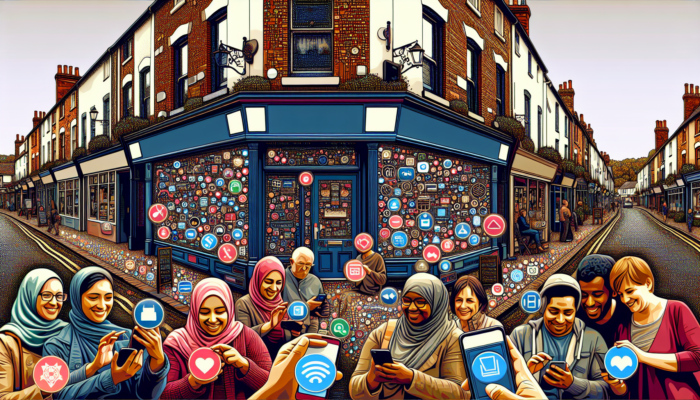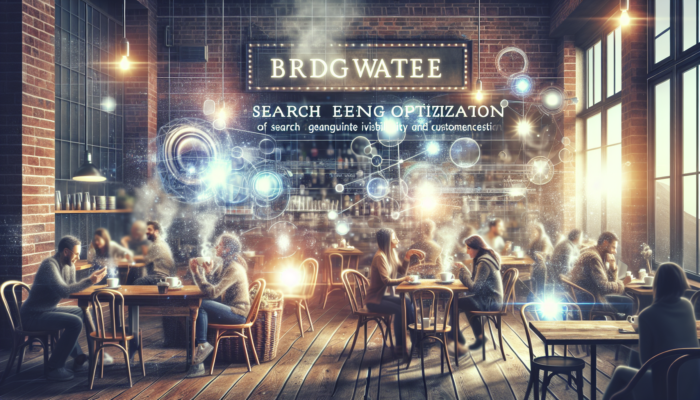Table of Contents
ToggleExplore a Diverse Array of Services from Premier Marketing Agencies
Enhancing Brand Visibility with Effective Digital Marketing Strategies

The leading marketing agencies utilise digital channels to ensure that brands attain exceptional visibility and foster genuine audience engagement. By crafting innovative social media campaigns that attract and retain interest, alongside implementing advanced search engine optimisation (SEO) techniques, these agencies formulate thorough digital marketing strategies that address the intricate dynamics of the contemporary marketplace. Their effectiveness is grounded in a deep understanding of user behaviour, allowing them to use analytics to fine-tune marketing tactics meticulously. This ensures communications are targeted and resonate with specific demographic segments, enhancing overall marketing effectiveness.
The pivotal importance of content marketing within digital strategies must not be overlooked. Top agencies excel at creating captivating content that not only informs but also engages and converts audiences. Whether through impactful blog posts, visually striking videos, or insightful infographics, the objective is to provide exceptional value that builds consumer trust and credibility. For example, an agency might implement a cross-platform campaign across Instagram and LinkedIn, using eye-catching visuals and well-researched articles to increase traffic and foster audience interaction.
Additionally, integrating email marketing as a crucial aspect of broader digital strategies allows agencies to cultivate leads effectively. Customised email campaigns that align with individual preferences can significantly enhance conversion rates. By employing A/B testing, agencies can continuously refine their outreach strategies to identify the most effective subject lines and content formats, ensuring their messaging resonates deeply with the intended audience and drives engagement.
Creating a Strong Brand Identity for Lasting Market Impact
At the heart of successful marketing efforts is the development of a compelling brand identity, which is a fundamental focus for the top marketing agencies. This intricate process transcends the mere creation of a logo or the selection of colour schemes; it encompasses the entirety of a brand’s persona, forging profound connections with its target audience. Effective branding strategies hinge on the art of storytelling, where the narrative encapsulates the brand’s core values and fosters emotional connections with consumers.
For instance, an agency might work closely with a startup to create a brand identity that embodies its innovative spirit and commitment to sustainability. This comprehensive approach includes in-depth workshops aimed at pinpointing the brand’s foundational values and crafting a visual identity that powerfully conveys these concepts. By maintaining consistent messaging across all platforms—be it social media, print, or digital channels—agencies ensure that the brand occupies a prominent position in the minds of consumers.
Moreover, the strategic aspect of market positioning is crucial in the branding process. Through thorough competitor analysis and identification of unique selling propositions, agencies develop strategies that differentiate the brand and highlight its strengths in a competitive landscape. A notable example includes how leading agencies have aided established brands in reinventing themselves to resonate with new generations of consumers, often through rebranding efforts that refresh their image while respecting historical roots.
Utilising Advanced Market Research Techniques for Tailored Strategies
A foundational component of effective marketing is a comprehensive understanding of the target audience, and the best marketing agencies excel at employing advanced market research techniques. This research goes beyond surface-level data, delving into the nuances of consumer psychology to uncover motivations, preferences, and pain points. By utilising both qualitative and quantitative research methods, agencies gather invaluable insights that shape their comprehensive marketing strategies.
Methods such as surveys, focus groups, and in-depth interviews are essential for data collection. For example, a top-tier agency might organise a series of focus groups to gauge consumer reactions to an upcoming product launch. The insights gleaned from these discussions can inform product development, ensuring alignment with market demands and consumer expectations.
Furthermore, data analytics plays a pivotal role in modern market research. Agencies leverage advanced statistical techniques to interpret large data sets, identifying trends that may not be readily apparent. This analysis might involve evaluating social media sentiment surrounding a brand or tracking purchasing behaviours across various demographics. The insights derived empower brands to make informed decisions that resonate with their global audiences.
Implementing Strategic Public Relations to Enhance Brand Reputation

Public relations is a nuanced discipline that the leading marketing agencies master to enhance brand reputation and visibility. Effective PR strategies are built on compelling narratives that resonate with both media outlets and consumers alike. By cultivating strong relationships with journalists and influencers, agencies ensure that their clients’ stories reach the right audiences, thereby bolstering brand credibility and trust.
Crisis management represents another crucial area where elite agencies excel. In situations involving negative publicity, a PR team’s quick and strategic responses can mitigate potential damage and help restore public trust. This often involves carefully crafting statements, ensuring transparency, and engaging with impacted stakeholders to demonstrate accountability and proactive measures.
Moreover, the integration of digital PR tactics, such as leveraging social media platforms for outreach, has transformed how agencies manage public perception. Campaigns that encourage user interaction through engaging content and real-time updates can significantly enhance a brand’s presence and foster a community of loyal advocates. By prioritising storytelling and audience engagement, top agencies navigate crises effectively while building enduring public relationships.
Crafting Innovative Creative Advertising Campaigns That Engage Audiences
Creativity is the cornerstone of impactful advertising, and the best marketing agencies are renowned for their innovative campaigns that resonate deeply with audiences. Their unique ability to seamlessly blend creativity with strategic insights results in advertisements that not only entertain but also drive measurable results. Agencies often invest considerable resources into brainstorming sessions where diverse teams collaborate to generate original concepts that stand out in a saturated market.
A notable example is how traditional advertising formats are being transformed through the introduction of interactive elements. Campaigns that invite user participation, such as augmented reality experiences, foster deeper connections with the audience, encouraging them to engage with the brand on multiple sensory levels. These pioneering advertisements utilise technology to create memorable experiences that are both shareable and capable of generating significant buzz.
Furthermore, effective storytelling techniques are crucial to the success of advertising campaigns. By crafting narratives that resonate emotionally with viewers, agencies ensure their campaigns are not just observed but also deeply felt. This approach can elevate a straightforward product launch into a compelling story, inviting consumers to become part of the brand’s journey. As a result, creative advertising evolves into a powerful medium for nurturing brand loyalty and driving audience engagement.
Proven Techniques for Achieving Marketing Success
Utilising Data-Driven Decision Making for Strategic Growth

In today’s information-driven landscape, data-driven decision-making is vital for the top marketing agencies. By harnessing analytics, agencies can devise strategies based on substantial evidence rather than intuition alone. Through systematic data analysis across diverse platforms, agencies can identify trends, optimise campaigns, and allocate resources efficiently, ensuring optimal outcomes.
The use of customer relationship management (CRM) systems exemplifies how agencies harness data to enhance client relationships. These systems track interactions, preferences, and consumer behaviours, providing invaluable insights that inform tailored marketing strategies. With a comprehensive understanding of a client’s needs, agencies can create campaigns that resonate on a personal level, significantly enhancing engagement rates.
Moreover, predictive analytics has emerged as a game-changing tool in strategic planning. By forecasting future trends based on historical data, agencies can proactively adapt their strategies to align with expected market shifts. This forward-thinking approach not only enhances operational efficiency but also positions brands as leaders within their respective industries.
Delivering Captivating Creative Campaigns That Engage Audiences
What sets the leading marketing agencies apart is their ability to deliver creative campaigns that challenge conventions and engage audiences meaningfully. These campaigns often merge traditional and digital strategies, incorporating storytelling, unique visuals, and interactive elements that captivate consumers. This multifaceted approach guarantees that campaigns resonate across various touchpoints, maximising reach and impact.
One notable strategy is the integration of user-generated content (UGC), which has gained significant traction in recent years. By encouraging customers to share their experiences with a brand, agencies tap into the power of authenticity and peer influence. UGC campaigns not only enhance community engagement but also provide brands with invaluable social proof, thereby bolstering credibility and trust.
Additionally, successful campaigns commonly involve collaborations with influencers who align with a brand’s values. By leveraging the reach and authenticity of these individuals, agencies can amplify their messaging and connect with new audiences. This synergistic approach not only enhances campaign visibility but also cultivates a sense of community among followers, driving engagement through relatable and engaging content.
Encouraging Client Collaboration for Optimal Marketing Outcomes
Successful client collaboration is fundamental to effective marketing initiatives, and the best marketing agencies recognise this core principle. Establishing clear communication channels from the outset ensures that both parties are aligned on goals, expectations, and timelines. Regular check-ins and updates foster a sense of partnership, enabling agencies to adjust strategies in real-time based on client feedback.
Moreover, collaborative workshops serve as invaluable platforms for brainstorming and refining campaign concepts. By gathering diverse perspectives from both agency and client, these sessions often yield innovative solutions that may not have emerged in isolation. The outcome is a campaign that not only meets client objectives but also resonates deeply with the target audience.
Furthermore, successful agencies prioritise education by empowering their clients with insights into the marketing landscape. By sharing knowledge about industry trends and best practices, agencies position themselves as trusted partners, enhancing the overall client experience and satisfaction. This commitment to collaboration strengthens relationships, driving mutual success for both parties involved.
Leveraging Technology and Tools for Enhanced Marketing Performance
Utilising Advanced Analytics Platforms for Comprehensive Performance Tracking
In the rapidly changing marketing environment, the best marketing agencies must stay ahead of the curve, and robust analytics platforms are essential for tracking performance and gaining valuable insights. These platforms equip agencies with a thorough understanding of campaign effectiveness by evaluating critical metrics such as engagement, conversion, and audience demographics.
Leading agencies frequently utilise tools such as Google Analytics, SEMrush, or HubSpot to monitor performance across various channels. By segmenting data and identifying which strategies yield optimal results, agencies can make informed decisions that enhance future campaigns. For instance, pinpointing which social media posts generate the most traffic can significantly influence content creation and distribution strategies.
Additionally, real-time analytics empower agencies to react swiftly to performance fluctuations. If an advertisement fails to resonate as expected, immediate data insights facilitate rapid adjustments, ensuring that marketing efforts remain aligned with client objectives. This agility is crucial in a fast-paced digital landscape, where consumer preferences can shift dramatically and unexpectedly.
Enhancing Efficiency with Automation Software
Automation has become a cornerstone of efficiency for the best marketing agencies. By implementing automation software, agencies can streamline repetitive tasks, allowing their teams to focus on strategic initiatives that drive growth. From email marketing to social media management, automation tools help agencies maintain consistency and accuracy across various campaigns.
Email marketing platforms like Mailchimp or ActiveCampaign enable agencies to schedule campaigns in advance, segment audiences effectively, and personalise communications on a large scale. By automating follow-up emails based on user behaviours, agencies can nurture leads more effectively, enhancing the customer journey while managing workload efficiently.
Moreover, project management tools such as Trello or Asana facilitate collaboration among team members by providing a centralised platform for task assignments and progress tracking. This level of organisation enhances accountability and reduces the likelihood of miscommunications, allowing campaigns to be executed smoothly and efficiently.
Optimising Content Management Systems for Seamless Content Delivery
Leading best marketing agencies recognise the importance of robust content management systems (CMS) in effectively managing and optimising content. A well-integrated CMS allows agencies to create, publish, and analyse content across multiple platforms seamlessly. This centralised approach fosters collaboration and ensures that all team members have access to the latest updates and resources.
Popular CMS options such as WordPress, Drupal, or HubSpot offer user-friendly interfaces that simplify content creation and management. By leveraging features like templates, SEO tools, and analytics, agencies can optimise their content for maximum performance and visibility.
Furthermore, an effective CMS allows for straightforward updates and modifications based on real-time feedback. If a particular blog post gains traction, agencies can amplify its reach through social sharing or additional promotional efforts. This dynamic approach ensures the content remains relevant and impactful, continually generating value for clients.
Assessing the Impact of Marketing Efforts
Establishing Key Performance Indicators for Effective Campaign Evaluation
Understanding the success of marketing initiatives hinges on identifying key performance indicators (KPIs), and the top marketing agencies excel in this critical aspect. KPIs provide measurable values that assist agencies in assessing the effectiveness of their campaigns, guiding strategy refinement and optimisation.
Commonly used KPIs include website traffic, conversion rates, customer acquisition costs, and return on advertising spend. By setting clear targets for these metrics at the campaign’s outset, agencies can effectively measure success. For instance, if a campaign aims to achieve a specific increase in website traffic, monitoring this KPI in real time allows for immediate adjustments if the target is not met.
Moreover, successful agencies often adopt a multi-channel approach to measuring impact. By tracking performance across various platforms—including social media, email, and web traffic—agencies can gain a comprehensive view of campaign effectiveness. This holistic analysis enables them to allocate resources efficiently, focusing on the channels that yield the most significant results.
Calculating Return on Investment for Marketing Campaign Effectiveness
Calculating return on investment (ROI) is crucial for demonstrating the value of marketing efforts, and the leading marketing agencies employ sophisticated methods to maximise ROI for their clients. By analysing the financial returns in relation to campaign costs, agencies can provide insights that inform future marketing strategies.
To accurately calculate ROI, agencies typically compare the revenue generated from campaigns against total expenditure. This process may involve tracking sales directly attributed to a specific advertisement or campaign, enabling agencies to identify which strategies deliver the highest returns. For example, an agency may find that a particular social media campaign drove increased sales, leading them to allocate further resources to similar initiatives.
Furthermore, successful agencies often emphasise long-term ROI by focusing on customer lifetime value (CLV). By nurturing leads and fostering brand loyalty, agencies help clients build relationships that yield sustained revenue over time. This long-term perspective ensures that marketing investments contribute to overall business growth, highlighting the significance of strategic marketing initiatives.
Utilising Client Feedback and Reviews for Continuous Service Improvement
Incorporating client feedback is essential for the ongoing enhancement of services, and the top marketing agencies prioritise this practice. By actively soliciting feedback through surveys, interviews, and reviews, agencies gain invaluable insights into their performance and client satisfaction levels.
Feedback not only highlights areas for improvement but also reinforces successful strategies. For instance, if a client provides positive feedback about a specific campaign, agencies can analyse the contributing factors to success and replicate those strategies in future projects. This iterative approach ensures that agencies remain agile and responsive to client needs, fostering long-lasting relationships.
Additionally, showcasing client testimonials and case studies can significantly enhance an agency’s credibility and attract new business. By highlighting successful collaborations and measurable outcomes, agencies effectively communicate their expertise and value proposition to prospective clients. This focus on transparency and client satisfaction cultivates trust and loyalty, ultimately driving long-term success.
Remaining Proactive in Industry Trends
Identifying Emerging Marketing Channels for Competitive Advantage
In the swiftly evolving marketing landscape, staying aware of emerging channels is crucial for the best marketing agencies to maintain a competitive edge. New platforms and technologies continuously reshape how brands engage with consumers, presenting exciting opportunities for connection and interaction.
A significant trend is the explosion of short-form video content, particularly on platforms like TikTok and Instagram Reels. These channels have transformed content consumption habits, prompting brands to utilise creative, concise videos to capture attention in a crowded digital marketplace. Agencies that harness these platforms can create compelling campaigns that resonate with younger audiences, driving engagement and conversions.
Furthermore, voice search technology is changing how consumers seek information. As smart speakers and voice-activated devices become more prevalent, agencies must adapt their SEO strategies to accommodate this shift. By optimising content for voice search queries, agencies ensure their clients remain visible and accessible in an increasingly voice-driven market.
Additionally, the integration of augmented reality (AR) and virtual reality (VR) into marketing strategies is gaining traction. These technologies provide immersive experiences that captivate audiences and enhance brand interaction. Agencies exploring AR and VR can devise unique campaigns that distinguish their clients in a competitive landscape, fostering engagement through innovative storytelling techniques.
Adapting to Evolving Consumer Behaviour for Greater Relevance
Understanding shifts in consumer behaviour is essential for the best marketing agencies to tailor their strategies effectively. As societal values evolve and technology advances, consumer expectations and preferences shift, necessitating a proactive approach from agencies.
The increasing demand for authenticity and transparency is a noteworthy trend influencing consumer behaviour. Today’s consumers are more discerning and seek brands that align with their values. Agencies that emphasise ethical marketing practices and corporate social responsibility resonate with audiences prioritising these attributes. For example, brands committed to sustainability often attract environmentally conscious consumers, resulting in heightened loyalty and trust.
Moreover, the shift towards personalised marketing experiences is reshaping how agencies approach campaigns. Consumers now expect tailored content that directly addresses their needs and preferences. By leveraging data analytics and segmentation, agencies can create hyper-targeted marketing strategies that enhance engagement and drive conversions. This trend towards personalisation signifies a fundamental change in consumer expectations, urging agencies to adapt their strategies accordingly.
Leveraging Technological Advancements for Marketing Innovation
Technological advancements are continually transforming the marketing landscape, and the best marketing agencies are quick to leverage these innovations. From artificial intelligence (AI) to machine learning, agencies harness advanced technologies to optimise campaigns and improve client services.
AI-powered tools streamline various marketing aspects, including data analysis, content creation, and customer interactions. For instance, chatbots offer immediate customer assistance, enhancing engagement and satisfaction while allowing agencies to allocate resources more efficiently. By integrating AI into their operations, agencies can optimise their marketing strategies based on real-time data, resulting in more effective campaigns.
Additionally, advancements in marketing automation have revolutionised how agencies manage their workflows. These tools facilitate seamless collaboration, enabling teams to optimise processes and enhance productivity. As agencies embrace automation, they can devote more time to strategic initiatives, ultimately achieving better client results.
Furthermore, the rise of big data analytics enables agencies to extract actionable insights from vast amounts of information. By analysing consumer behaviour patterns and preferences, agencies can develop targeted campaigns that resonate with audiences. This data-driven approach not only enhances marketing effectiveness but also fosters a deeper understanding of consumer needs and expectations.
Selecting the Right Marketing Agency for Your Unique Needs
Evaluating the Expertise and Specialisation of Marketing Agencies
When seeking the ideal marketing partner, understanding the expertise of the best marketing agencies is paramount. Each agency possesses distinct strengths and specialisations, and evaluating these factors can significantly impact the success of your marketing initiatives.
Potential clients should consider the agency’s experience within their specific industry. Agencies that specialise in particular sectors often bring invaluable insights and strategies tailored to that market. For example, an agency with a proven record in the tech sector may be better suited to navigate the nuances of marketing in that field than a generalist agency.
Additionally, examining the agency’s portfolio can offer insights into its creativity and effectiveness. Successfully executed campaigns from previous clients serve as benchmarks for prospective performance. An agency’s ability to showcase diverse case studies demonstrates its versatility and innovation, making it a more appealing choice for clients seeking impactful marketing strategies.
Moreover, assessing the agency’s team composition and expertise is essential. A well-rounded team with diverse skill sets—including SEO specialists and content creators—can effectively address various facets of a marketing strategy. This diversity fosters a collaborative environment where innovative ideas can flourish, leading to campaigns that resonate with target audiences.
Reviewing Case Studies for Quantifiable Insights
Case studies serve as powerful tools for assessing the performance of the best marketing agencies. These detailed accounts provide potential clients with insights into how agencies have tackled challenges and achieved measurable results for their clients.
When reviewing case studies, clients should seek comprehensive analyses that outline specific campaigns’ objectives, strategies, and outcomes. A well-structured case study not only highlights the results achieved but also illustrates the strategic thinking and creativity involved. For example, an agency that successfully increased a client’s market share through targeted social media ads offers a clear perspective on its capabilities.
Moreover, successful case studies frequently include metrics that demonstrate the impact of the agency’s work. Clients should look for quantifiable outcomes, such as increased sales, improved customer engagement, or heightened brand visibility. These metrics serve as tangible evidence of the agency’s ability to deliver results, reinforcing their credibility and expertise.
Additionally, diverse case studies spanning different industries can showcase an agency’s adaptability. Agencies that have successfully engaged with various markets illustrate a breadth of experience that can benefit clients seeking innovative solutions tailored to their unique needs.
Understanding Agency Culture and Core Values
The culture within an agency can significantly influence the success of a client-agency relationship, making it crucial for potential clients to assess the values and environment of the best marketing agencies. A compatible culture fosters collaboration and trust, enabling teams to work together effectively towards shared objectives.
Clients should seek agencies that prioritise transparency and open communication. An agency that welcomes client input and feedback cultivates a more collaborative atmosphere, promoting a sense of partnership. This is particularly vital in marketing, where flexibility and responsiveness can significantly impact campaign success.
Moreover, understanding an agency’s approach to creativity and innovation is essential. Agencies that encourage experimentation and embrace new ideas are more likely to produce groundbreaking campaigns that resonate with audiences. A culture that values creativity not only enhances the quality of marketing efforts but also inspires teams to push boundaries and explore new possibilities.
Furthermore, organisations that prioritise diversity and inclusion typically cultivate more innovative and effective teams. Diverse perspectives lead to more comprehensive strategies that better address the needs of varied audiences. Potential clients should seek agencies that demonstrate a commitment to inclusivity, as this can greatly enhance the overall effectiveness of marketing initiatives.
Evaluating Cost-Effectiveness and ROI of Marketing Partnerships
Assessing the cost-effectiveness of partnering with the best marketing agencies is crucial for businesses aiming to maximise their marketing budget. Evaluating costs relative to potential returns on investment (ROI) is essential for making informed decisions.
When considering agency costs, clients should examine the services offered in relation to the pricing structure. An agency providing a comprehensive suite of services may present a higher upfront cost but could yield better results through integrated strategies. Clients should focus on the long-term value of agency partnerships rather than solely on initial expenditures.
Moreover, potential clients should seek transparency in pricing structures. Agencies that provide detailed breakdowns of costs associated with specific services empower clients to comprehend their investments. This transparency fosters trust and enables clients to make informed decisions based on their budget and expectations.
Additionally, evaluating potential ROI is critical for determining the value of agency partnerships. Clients should consider historical performance metrics and case studies that demonstrate the agency’s ability to deliver tangible results. By aligning expected outcomes with costs, clients can better assess the potential return on their marketing investments, ensuring they select an agency that adds significant value.
Commonly Asked Questions About Marketing Agencies
What services do marketing agencies typically provide?
Marketing agencies frequently offer a comprehensive array of services, including digital marketing, branding and identity development, market research, public relations, and creative advertising campaigns tailored specifically to their clients’ unique needs.
How can I measure the success of a marketing campaign?
Success can be quantified through key performance indicators (KPIs) such as website traffic, conversion rates, and return on investment (ROI), which assist in evaluating the effectiveness of diverse marketing strategies.
What should I consider when selecting a marketing agency?
When choosing a marketing agency, evaluate its expertise in your industry, review its case studies, assess its team composition, and understand its culture to ensure alignment with your objectives.
Why is data-driven decision-making crucial in marketing?
Data-driven decision-making enables agencies to develop marketing strategies based on empirical evidence, enhancing campaign effectiveness and optimising resource allocation for superior results.
How can I boost brand visibility through marketing?
Boosting brand visibility involves implementing digital marketing strategies, engaging with audiences on social media platforms, and executing creative advertising campaigns that resonate with targeted demographics.
What advantages does automation offer in marketing?
Automation streamlines repetitive tasks, enhances operational efficiency, and allows marketing agencies to focus on strategic initiatives, ultimately improving the overall effectiveness of their campaigns.
How can I ensure successful collaboration with my marketing agency?
Encouraging open communication, providing clear objectives, and fostering a collaborative environment can significantly enhance the client-agency relationship, leading to more successful marketing initiatives and outcomes.
Which emerging trends should I be aware of in marketing?
Stay informed about trends such as the rise of short-form video content, the growing significance of personalised marketing experiences, and the integration of AI and automation into marketing strategies.
How do I calculate return on investment (ROI) for marketing campaigns?
Calculate ROI by comparing the revenue generated from a campaign against its total costs. This process allows you to assess the effectiveness and value of your marketing investments.
What role does customer feedback play in marketing?
Customer feedback provides invaluable insights into client satisfaction and performance, assisting agencies in refining their services and enhancing future marketing strategies for better alignment with client needs.
Connect with us on Facebook!
The post Top Marketing Agencies: Leading Industry Innovators appeared first on Ezi Gold.
















